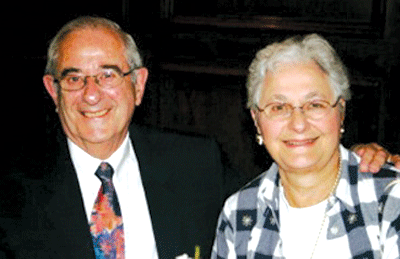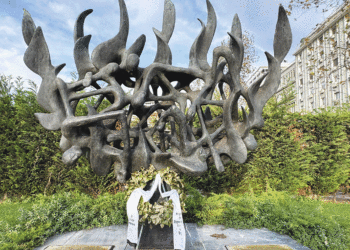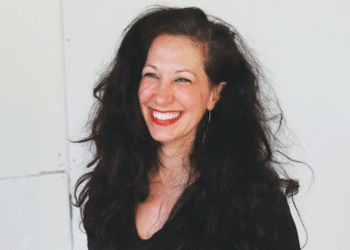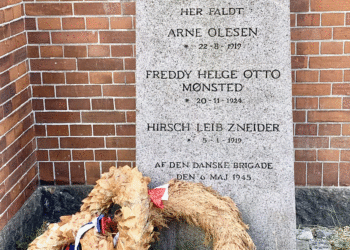We are very lucky in the Twin Cities to have many opportunities to learn to be effective caregivers for loved ones suffering from Alzheimer’s disease
By SUMNER RICHMAN
My wife and I have known each other for 67 years, and have been married for 62 years. We have no doubt that we will continue loving each other for many more. She has done so much for me over the years, and I owe her a great deal for what we have accomplished together.
I met Joyce in Nantasket Beach, a suburb of Boston, where I grew up. It was a small town with about 1,200 people, but it grew to 20,000 as residents of Boston and surrounding areas rented beach houses for the summer. Joyce’s family rented a place close to mine, both on the edge of the ocean. She had just finished her junior year in high school, and I had just graduated.
Alzheimer’s conference set for May 3
We started dating that summer and continued through college, even though we went to different schools. When I graduated four years later, we were engaged, and I joined her at the University of Massachusetts. When Joyce graduated a year later, we married and started our wonderful life together.

I finished my master’s degree a year later and we moved to Ann Arbor, Mich., where I started a Ph.D. program in marine biology. When I was awarded my doctoral degree, Joyce received a corresponding Ph.T. degree (Pushing Hubby Through) from the American Association of University Women — an honor richly deserved for all the help and support she gave me.
After 40 years living in Appleton, Wisc., rearing our three children and teaching at Lawrence University, we retired and moved to the Twin Cities, where two of our children and our three grandchildren live. We are very proud of the accomplishments of our kids and grandkids.
Over the years, we have traveled the world and, while our travel days are over, we continue to enjoy Shir Tikvah Congregation, and the wonderful theater, music, museums and restaurants here, as well as our friends and support that we need as health issues play a larger role in our lives.
Joyce has always loved her active life in homemaking, volunteering, entertaining and involvement in outside activities. About eight years ago, things began to change.
She began losing interest in many activities she had always enjoyed. She showed less interest in entertaining, she was less able to make meals, she frequently got lost driving, etc. At first I didn’t understand what was going on. I was upset. Why was Joyce repeating questions I had just answered? What was making my wife so apathetic about life?
My wife behaved in ways that were so different from what I was used to. I sought help from a neurologist who diagnosed Joyce as being in the early stages of Alzheimer’s disease. She is now in a moderate-to-severe stage.
We are very lucky in the Twin Cities to have many opportunities to learn to be effective caregivers for loved ones suffering from this disease. In my own experience, I have not only learned from expert doctors, but also from the Alzheimer’s Association, memory clubs, caregiver groups, Mayo Clinic programs, Walker Art Museum programs, research presentations, advisory groups and university conferences.
In my view, to be an effective advocate, education is very helpful. Equally important is having patience to recognize that when my wife repeats comments or questions many times, for her it is the first time — and my job is to respond accordingly. Perhaps the most valuable thing I’ve come to understand is that even with Alzheimer’s, Joyce has the same needs as anyone else — to be engaged with dignity, to be touched and hugged, and to feel valued.
I love taking care of my wife. It brings me joy, and it has brought us even closer together. But it also brings stress to my life, and I know that I must take care of myself and receive help from family, friends and professional caregivers at home so I can continue my outside volunteer activities in science and with Alzheimer’s advisory groups.
I also know that I am not perfect, nor is anyone else. I’ll have moments when stress results in my saying things that I feel guilty about later. But there isn’t a night that goes by when we don’t say to each other, “I love you.”
Please join our community to learn more about dementia and the resources available to help affected families. The Twin Cities Jewish Community Alzheimer’s Task Force will present “Keeping the Spirit Alive,” a conference for caregivers and those supporting a loved one with dementia, on May 3 at the Sabes JCC in St. Louis Park. The conference will be a free half-day event featuring experts in the field of dementia and caregiving.
***
For information on the Twin Cities Jewish Community Alzheimer’s Task Force conference, contact co-chairs Rita Kelner at 612-834-0641 or Judy Witebsky at 763-546-1658.
(American Jewish World, 2.13.15)




















Sub, you continue to inspire and challenge me to be a better person. Thank you for sharing with an open heart and leading by example. We were so fortunate that you and Joyce took us under your wings so many years ago!
Dear Sumner:
I studied Limnology during the
early ’70’s while a biology major at Lawrence.
Thank you, it was a terrific course. And what you
have written is beautiful. I married once for 34
years to Margo, she passed at home with Hospice November 11th of 2016. I now live in New Orleans and
and am assistant clinical professor of psychiatry at
Tulane School of Medicine. I am planning to go to
Bjorklunden this Summer. I see Chris Langdon
achieved his goal of becoming a marine biologist.
Eben McClenahan, M.D. (LU 1977)